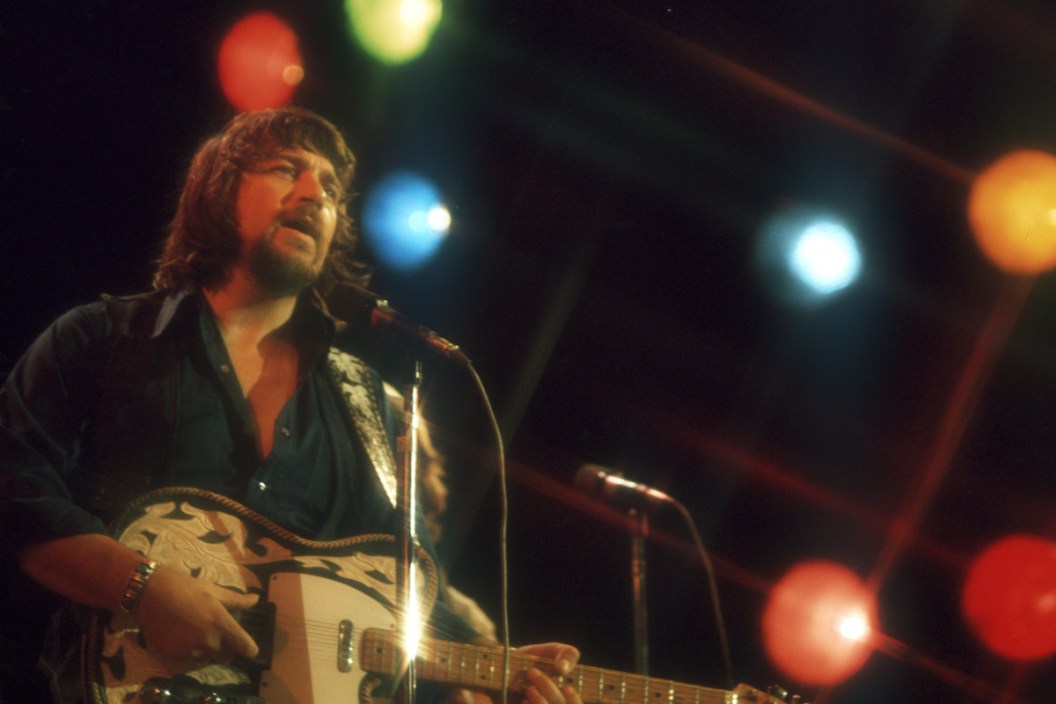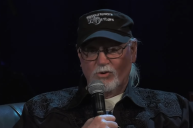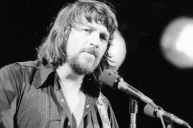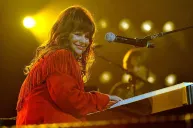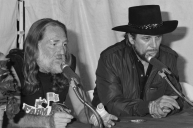From Waylon Jennings' teenage experience as a hometown radio personality to his twilight years as one of country music's elder statespeople, the Littlefield, Texas native turned Nashville rebel fulfilled his musical dreams without following the industry's rules.
Videos by Wide Open Country
Take a look back at the country icon's life in photos.
Young Waylon
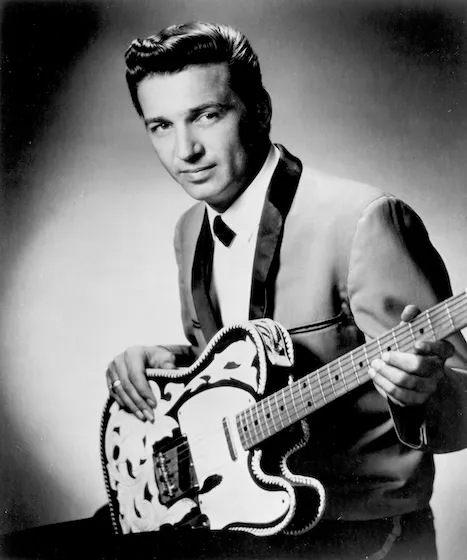
(Michael Ochs Archives/Getty Images)
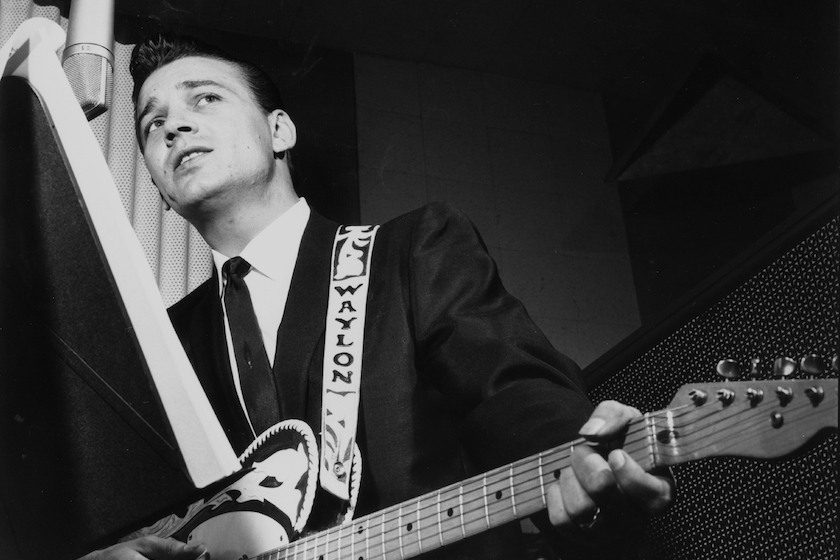
(Michael Ochs Archives/Getty Images)
Jennings' regional acclaim dated back to childhood appearances in talent shows. It put him on the map of local product turned rock 'n' roll pioneer Buddy Holly, who had a hand in Jennings' 1958 debut single, "Jole Blon" b/w "When Sin Stops (Love Begins)." Holly recruited Jennings to play bass on the rocker's Winter Dance Party tour, which got cut short by the 1959 plane crash that claimed the lives of Holly, Ritchie Valens and the Big Bopper (J.P. Richardson).
The first signs that Jennings was destined to become a country star came in Arizona, where he and the original lineup of his backing band, The Waylors, built an audience for its rock-influenced, guitar-driven brand of country music: a sonic approach influenced by Elvis Presley, George Jones and Hank Williams.
Despite landing a deal with A&M Records by 1963 (and first recording future classic "Just to Satisfy You" in 1964), early career victories eluded Jennings. In 1965, he joined the RCA Victor roster, where he found chart success (1968's "Only Daddy That'll Walk the Line" reached No. 2 and teased the shape of outlaw country to come) and won a Grammy (Best Country Performance by a Duo or Group With Vocal for The Kimberlys collaboration "MacArthur Park"). Still, the young, clean-shaven singer, songwriter and guitarist was yet to fully realize his outlaw country potential.
The Outlaws
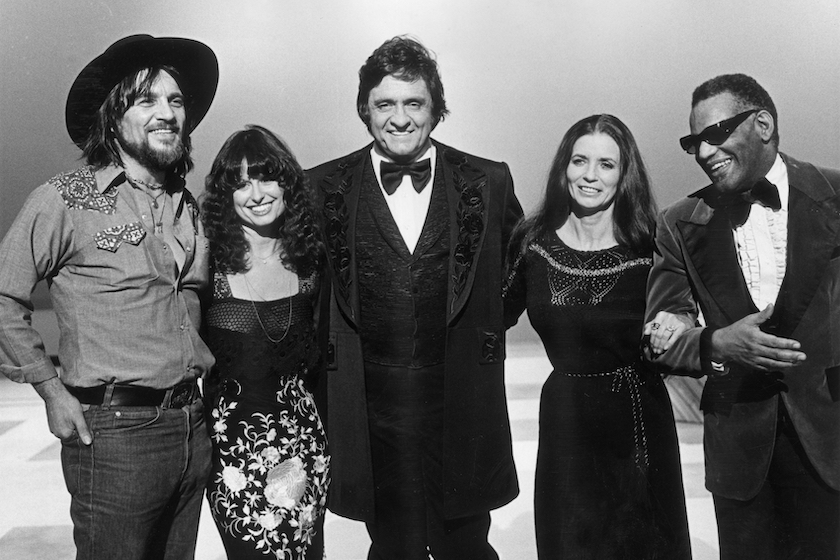
American country singer Johnny Cash (1932 - 2003, center) stands with his guests (left to right) Waylon Jennings (1937 - 2002); Jessi Colter; his wife, June Carter Cash (1929 - 2003); and singer Ray Charles, in a promotional portrait from Cash's television special 'Johnny Cash; Spring Fever'. (Photo by CBS Photo Archive/Getty Images)
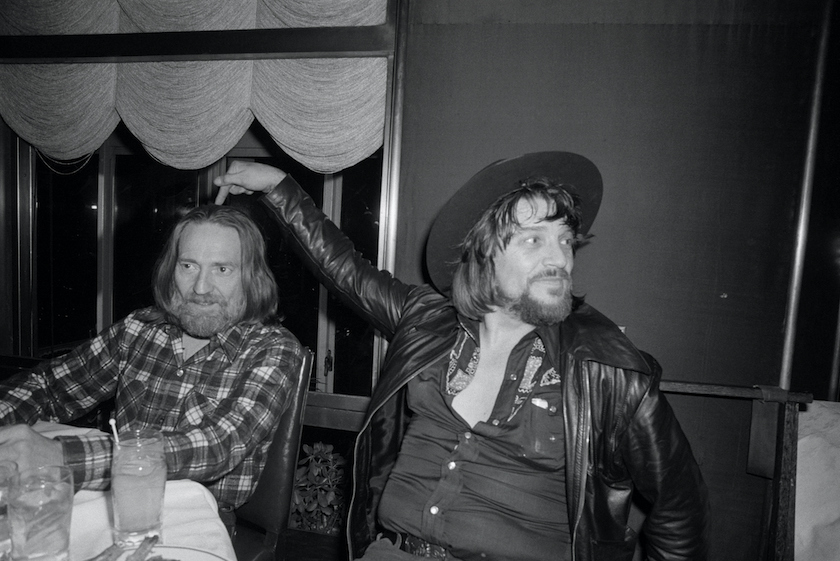
Country-western singer stars Willie Nelson (left) and Waylon Jennings celebrate at a party at the Rainbow Room in honor of their new album, "Waylon and Willie." (Bettmann / Contributor)
Outlaw country had more to do with creative freedom than surly attitudes or hard living. Jennings wanted to play on albums with his touring band, not fit Nashville's mold by working with session musicians or string sections, while crafting his own look and sound.
Two 1973 albums (Lonesome, On'ry and Mean and Honky Tonk Heroes) fully reflected Jennings' hard-nosed answer to slick, pop-influenced country music. Unprecedented chart success followed, as exemplified by 1975's "Are You Sure Hank Done It This Way."
Musical rebellion met commercial viability in 1976 when compilation album Wanted! The Outlaws became country music's first platinum-selling LP. The seminal collection compiles songs by Jennings, his wife Jessi Colter, personal and professional confidant Willie Nelson and Tompall Glaser, whose Nashville recording studio Hillbilly Central became the creative incubator of the outlaw movement.
The names Waylon and Willie became synonymous during the peak of outlaw country, in part because of the decade-defining duets "Luckenbach, Texas" and ""Mammas Don't Let Your Babies Grow Up to Be Cowboys."
From Hellraiser to Elder Statesperson
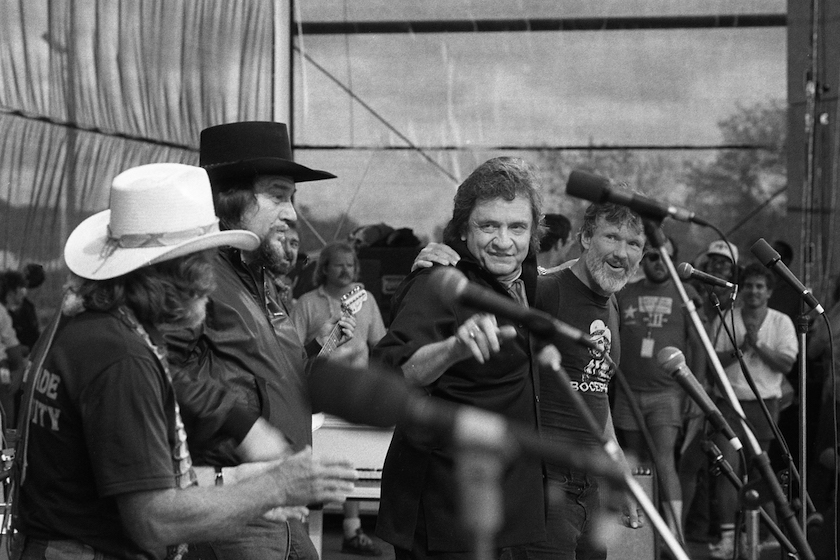
Country singer and songwriter Willie Nelson, Waylon Jennings, Johnny Cash, and Kris Kristofferson perform as the Highwaymen at Willie Nelson Fourth of July picnic on July 4, 1985 in Austin, Texas. (photo by Beth Gwinn/Getty Images)
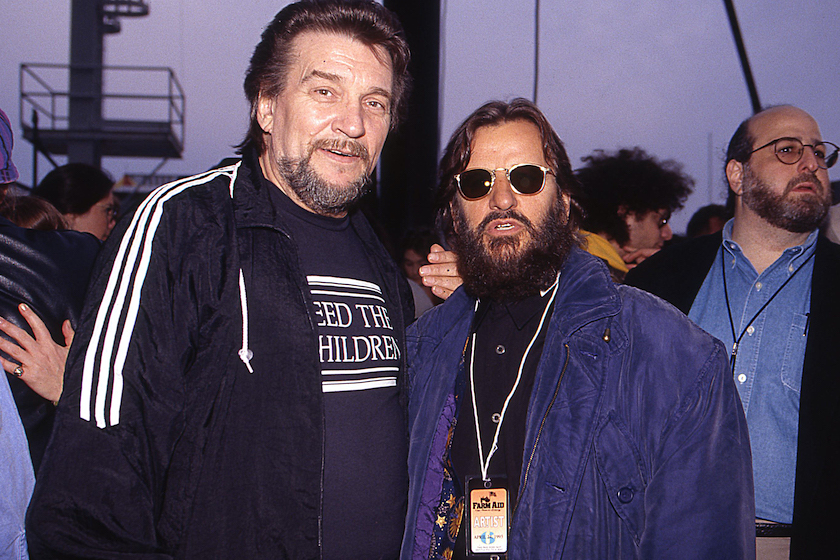
Waylon Jennings and Ringo Starr backstage during Farm-Aid April 24, 1993 Ames, Iowa (photo by Beth Gwinn/GettyImages)
Jennings' pop culture stamp on the 1980s, a time when his rowdy friends settled down, brought us his role as the narrator on The Dukes of Hazzard and his stint with supergroup The Highwaymen alongside Nelson, Johnny Cash and Kris Kristofferson.
As neo-traditionalists of the '80s and the megastars of the '90s emerged, Jennings (along with Merle Haggard, Dolly Parton, Loretta Lynn and others) was among the living legends still hitting the road and charting singles. Indeed, Jennings' No. 5 hit "Wrong" came in 1990, giving him Top 5 hits in four consecutive decades.
Jennings died on Feb. 13, 2002 at his Chandler, Ariz. home from complications from diabetes. The news came just months after his 2001 induction into the Country Music Hall of Fame. His legacy is carried on by his youngest child Shooter Jennings, who understands that the best way to be like his dad is to be himself.
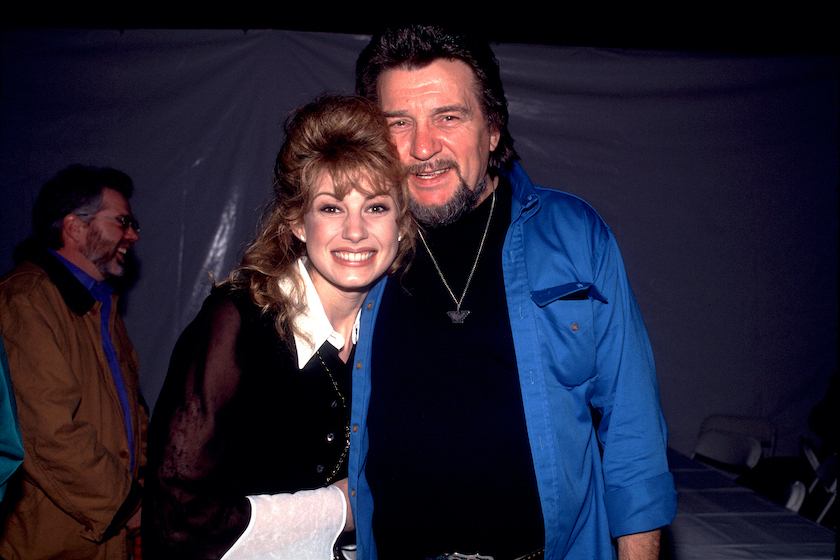
Faith Hill and Waylon Jennings before a video shoot for the song Amazing Grace for the soundtrack of the film "Maverick" at Amy Grant's farm in Williamson County, Tennessee, February 22, 1994. (Photo by Paul Natkin/Getty Images)
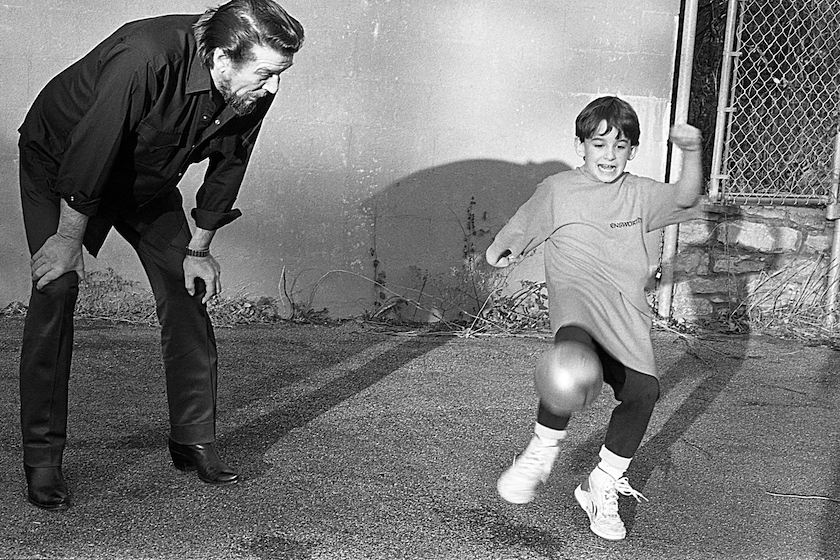
Country singer and songwriter Shooter Jennings on the slide on December 9, 1987 Nashville Tennessee December 9, 1987. (photo by Beth Gwinn/Getty Images)
Editors Note: This article was originally published on February 11, 2021.
